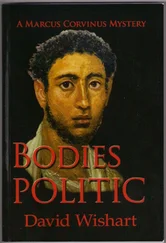ately-faces, names, stories-as if he'd already made up his mind that he was only the conduit through which his life flowed on its way to her, that only upon reaching her did it become real-she even knew his childhood memories better than he did. And she resisted and yet surrendered to his transparent and ample minutiae, to the warmth he pooled every day between her hands like a huge ball of dough-a soft man, always being baked and risen, steaming in anticipation of her.
Sometimes before going to bed at night she stands on the porch for a few minutes, hands on the railing, the exhausted captain of a large ship that roars beneath her, and it's good, it is the abundance of life, and a salty happiness beats in her throat, and it is more wonderful than she had ever dared to dream of in the miserable nothing she came from, and then all of her is there, she is the core of the fruit, and there is nothing better than to feel her blood pulsing and to know that she, only she, is the power that, in its warmth and persistence, allows the billions of molecules of the home and the family to keep adhering to one another, that she is a sole warrior against the massive forces of destruction which lie waiting to pounce on her every distraction and neglect. (But this week, when she was playing with the twins in the park, a Russian nanny asked her innocently if she got paid double, and everything fell apart again.)
She often catches herself making petty calculations: the twins will leave home for the army only in another thirteen years, but by that time, one hopes, there will be grandchildren from the big kids, and she may never stop running up and down the steps and around the yard, picking up toys and paper and paints and half-eaten rolls and gnawed peaches and flea collars and sheet music and Pokйmon cards and widowed socks and heavy diapers and receipts and zit cream and bottle tops for prize drawings and hair scrunchies and coins and dust bunnies and little bras. And a hundred times a day she'll check off every task she completes-"Life is like a check-off play," Hagai used to joke-and the buzz she produces will never stop, God forbid it should stop, she thought, and in the momentary internal quiet she heard the truth she could never forget: that since being born, since being who she was, she'd been pursuing the human race, wide-eyed, and that Micah and the kids were the closest she'd ever come, and that no mortal could reasonably be asked to give up such an accomplishment.
She knows that if they even picked up a hint of these thoughts- Micah may sense something but he'd never say a word, not even to himself-they would not be merely astonished and hurt, they would simply shatter into pieces, disappear, evaporate before her very eyes like soap bubbles. These children she had stealthily made for herself, stolen or smuggled out of nothingness, and whom she protects like a wild animal, reviving them over and over again with an infinite series of acts and thoughts and intentions and deeds, conjugated in a maternal list of verbs. Again and again she gathers them up in defense against the treacherous urge to crumble that she senses in them constantly as it lurks beneath their skin, waiting for the one and only moment when she will tire. But she won't, not ever, she won't tire, but will also not be able to give up that bitter thought. She thought Shaul would understand this, and glanced at him and discovered with surprise that he was looking at her deeply, as if he had been following her changing expressions for a long time. Without thinking, she said, You know, sometimes after everyone goes inside, I stay in the garden for a while, beneath the willow branches, and if I need something more solid, I go right inside the rosemary bush, and for a few moments I watch the house from there, with its lit-up windows, the silhouettes of Micah and the kids, and I have this thing where I go backwards until I disappear.
He was quiet; his eyes seemed wistful to her. Then he said, It's getting crowded in that rosemary bush. And from far away he mustered up a shy, shaky smile for her.
Then he sank back in his place and withdrew into himself, trying to overcome the waves of pain that throbbed through his leg, making it swell until he felt it would burst. He wondered whether to take another pill, but decided it was not yet time, better to wait awhile. In-
stead, as always, he slowly fused his aches into a completely different pain, nameless and sharp, and he cautiously walked it-according to a precise plan whose details he knew well-over his entire body and soul and right into his burning eyes, and now, here
He is somewhere else, somewhere new, a sprawling flatland at the foot of shadowy masses, bordered by desert and mountains. He is surrounded by people, dozens, perhaps hundreds of volunteers come to search for his Elisheva. Every year they come, every year when Elisheva goes off. He tries to follow one of them, but it's like tracking a single ant in an ants' nest, and he persists and catches sight of a well-built young man wearing blue overalls and sticks with him. This man looks slightly familiar, a bit like the guy who once helped Elisheva and him when their car got stuck on the way up north; he had smiled as he swiftly maneuvered and explained, and as an afterthought had also helped them dislodge a jammed cassette from the tape deck and fixed a crooked windshield wiper, and only after they said goodbye had they discovered that he'd left them in a bit of a jam because he'd slid the driver's seat back to accommodate his long legs, and they couldn't get it forward again, and then Shaul had to drive all the way as if he were standing on tiptoe. The guy in the blue overalls rushes over to one of the parked trucks, climbs up on its back, and a moment later jumps down with a big, stuffed kit bag and runs over to a little water reservoir next to an acacia tree, his head thrust forward so he looks as if he is already in the midst of a furious search, lacking only his tongue sticking out of his mouth. He runs past another man, thicker and slower, and something about him vaguely recalls the Arab guy from the deli at the supermarket-Elisheva likes to quote the ambiguous idioms he produces as he tempts the customers to taste the goods, particularly the women, of course, but even with Shaul he jokes in amazing Hebrew about the salami and the quail eggs-he is also running here, carrying a kit bag; strange that even Arabs would come on this kind of search. He stops by another truck, and some-
one from inside it hands him a rifle, which is somewhat surprising-after all, he is an Arab-but this search must be beyond any national conflict, a clear humanitarian issue that unites all peoples, although it's unclear to Shaul why they even need weapons here. Who are they all going to fight, and over what, or whom? Not far from him a few men are quickly uncoiling huge rolls of barbed wire, setting up a fence and turning the site into a small, protected camp-but from whom? Two men who walk past him carry a large, sharpened wooden post. They shout to each other from either end, Where are you from? Netanya. I'm from Metulla, I was fast asleep, the first says. And me, I was in the middle of dinner, an omelet, and just the way I was, I got up and left. It just gets hold of you suddenly, the first one growls, just drops on you. They slow down and stop for a minute as if they've forgotten where they are headed; they lower their heads and a strange quiet surrounds them, a gloomy, intimate silence like the one that takes hold of your heart when twilight descends and the night becomes at once inevitable.
As he watches, a slight, feathery sense of worry emerges in him, and he brushes it off: they're here to help, to find her. Although of course, he concedes, ultimately it will be one, one of all these hundreds of men, who will find her, who will get to her first, who will stand in front of her alone and absorb her abundant gratefulness, the image of her chest swelling at him with excitement. And what will happen then? What will we do with that one? But it's too early to worry, he thinks. Before we can get to that one, we need the many, the multitudes. We need to filter them out slowly, propel them in their souls like a thousand grains of sand in a fine sieve to finally find within them the one golden grain for which Elisheva will sparkle, almost despite herself
Читать дальше












